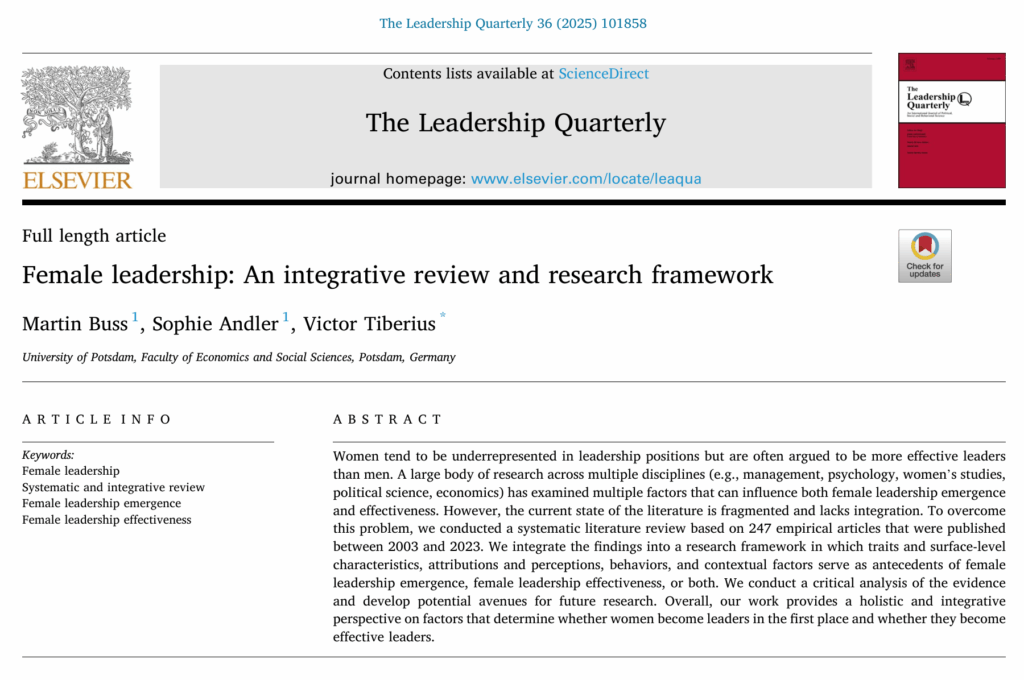University|05-09-2025
Female Leadership
Abstract:
Women tend to be underrepresented in leadership positions but are often argued to be more effective leaders than men. A large body of research across multiple disciplines (e.g., management, psychology, women’s studies, political science, economics) has examined multiple factors that can influence both female leadership emergence and effectiveness. However, the current state of the literature is fragmented and lacks integration. To overcome this problem, we conducted a systematic literature review based on 247 empirical articles that were published between 2003 and 2023. We integrate the findings into a research framework in which traits and surface-level characteristics, attributions and perceptions, behaviors, and contextual factors serve as antecedents of female leadership emergence, female leadership effectiveness, or both. We conduct a critical analysis of the evidence and develop potential avenues for future research. Overall, our work provides a holistic and integrative perspective on factors that determine whether women become leaders in the first place and whether they become effective leaders.
Reference:
Buss, M., Andler, S., & Tiberius, V. (2024). Female Leadership: An Integrative Review and Research Framework. The Leadership Quarterly, in press, 101858. doi:10.1016/j.leaqua.2024.101858



